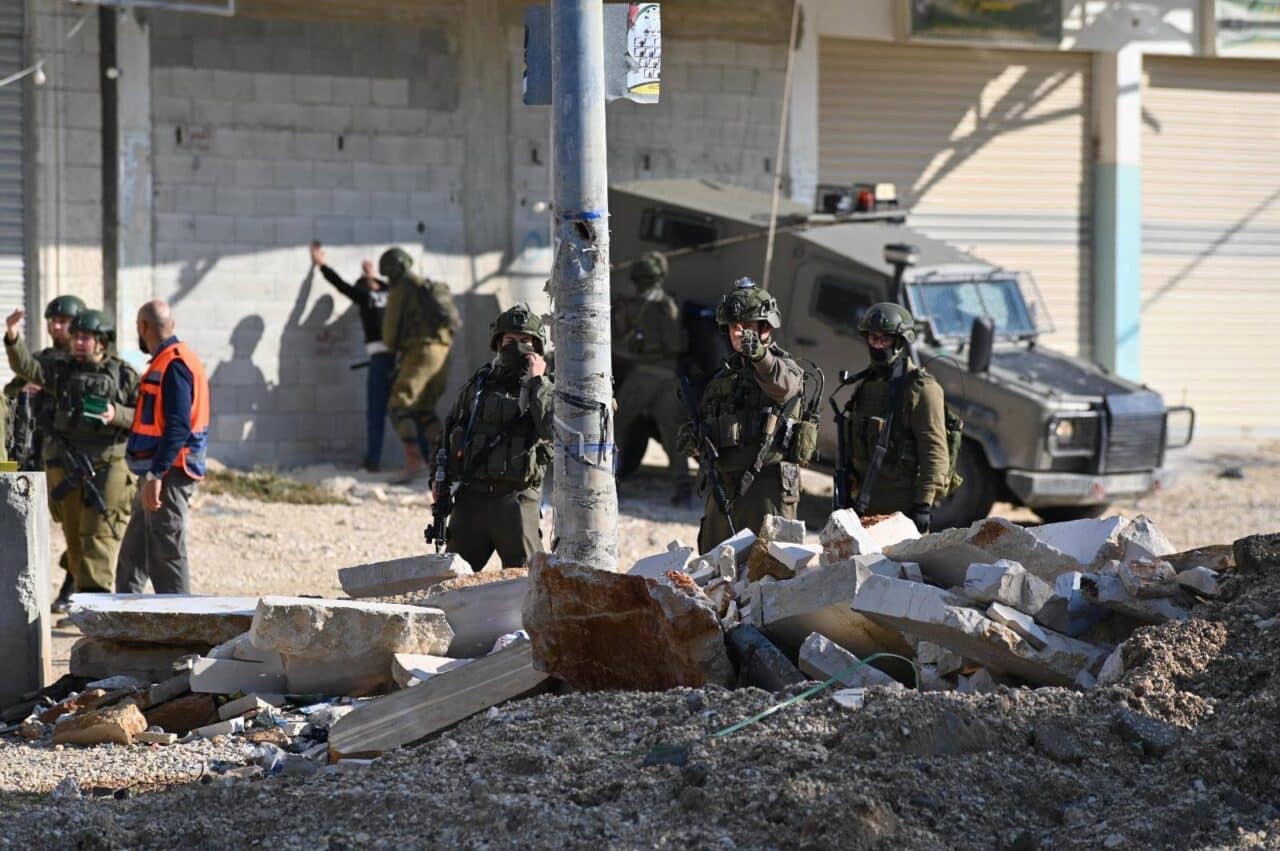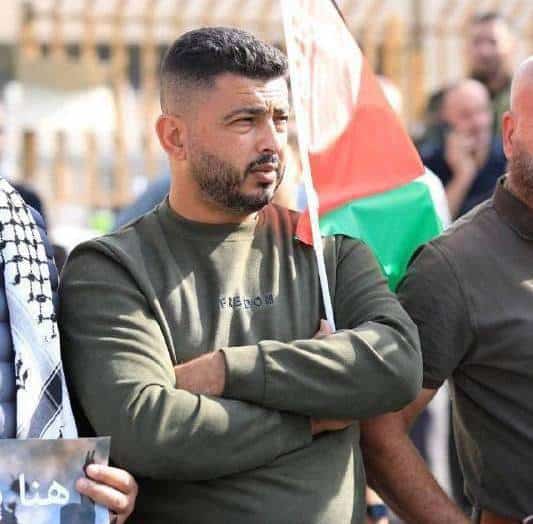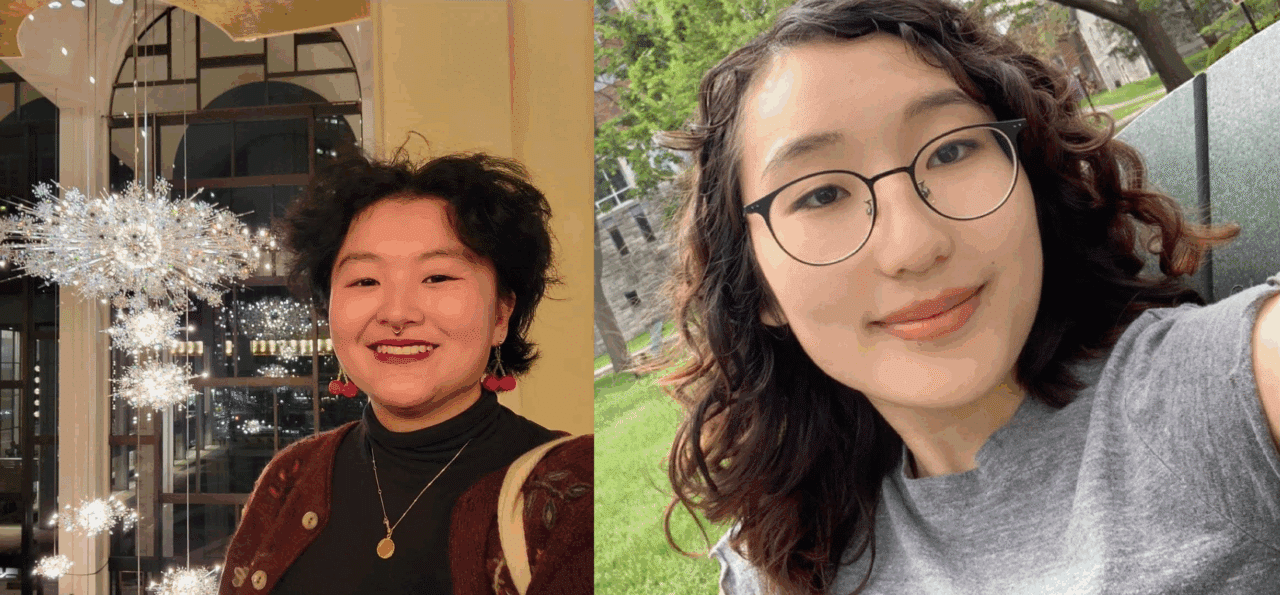-
Israel Moves to Legitimize Its Crimes in the West Bank
Palestine / West BankBy Diana khwaelid The West Bank has witnessed an unprecedented escalation of violencecarried out both by Israeli soldiers deployed in the area and by settlersdriven by aggression. Beit Lid TownThe town of Beit Lid, located northeast of the city of Tulkarm in thenorthern West Bank, has experienced a surge in violence and […]
-
Court Approves 6 month Administrative Detention of Palestinian Activist Ayman Ghrayeb
December 18, 2025 The six months long administrative detention order against Palestinian grassroots activist Ayman Ghrayeb was approved by the Offer military court earlier today. The summary procedure took place in secrecy and behind closed doors, without even Ghrayeb’s lawyer having any knowledge of the allegations against him other than a vague insinuation of incitement, […]
-
FOR IMMEDIATE RELEASE: Attempts to Displace Palestinian Family in al-Mughayyer Continue as US Citizens Deported after a Week of Detention
18 December, 2025 For further details:* Mia +972-53-809-7706 New York-based Irene Cho and Boston-based Trudi Frost, who were arrested by Israeli forces last Friday, remain in custody at the Givon prison after Israeli courts have summarily denied all their appeals while refusing to examine the evidence proving they have committed no offense. They are expected […]
Action Alert An Nabi Saleh Apartheid Wall Arrests BDS Bethlehem Bil'in Cast Lead Demonstration Denial of Entry Ethnic Cleansing Farmers Gaza Global Actions Hebron House Demolition International law Israeli Army Jerusalem Live Ammunition Nablus Ni'lin Prisoner Ramallah Rubber-coated steel bullets Settlement Settlers Settler violence Tear-Gas Canister Video



